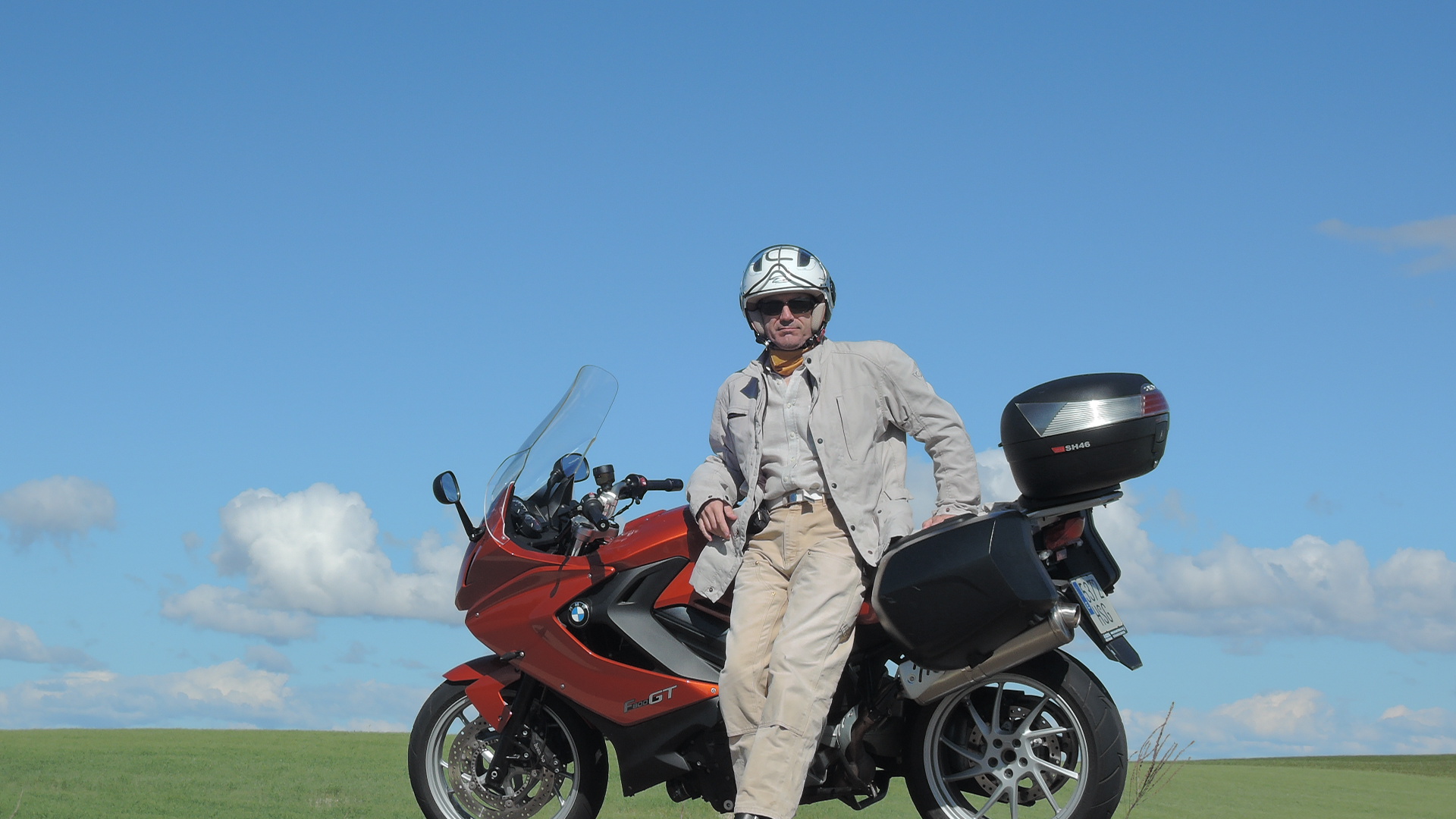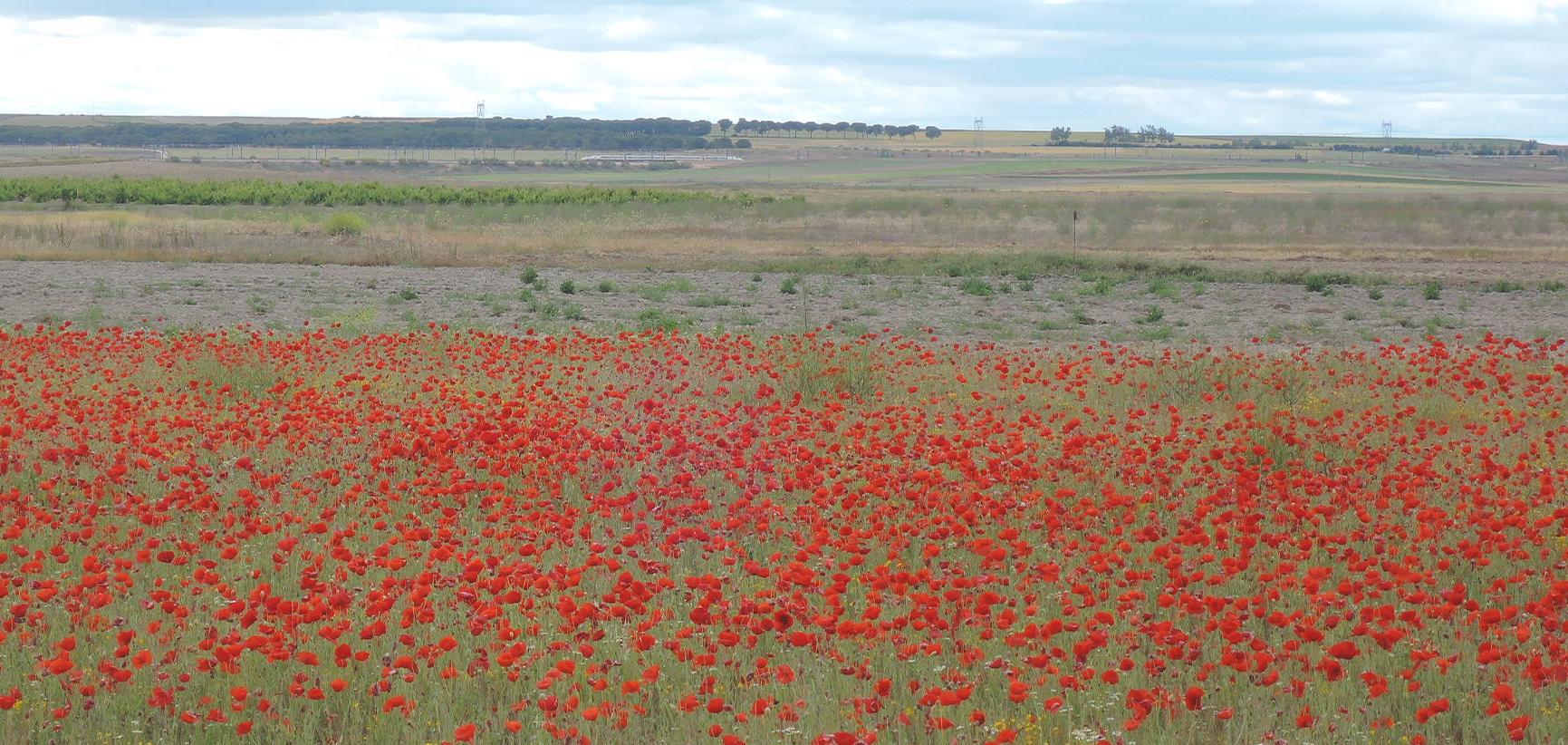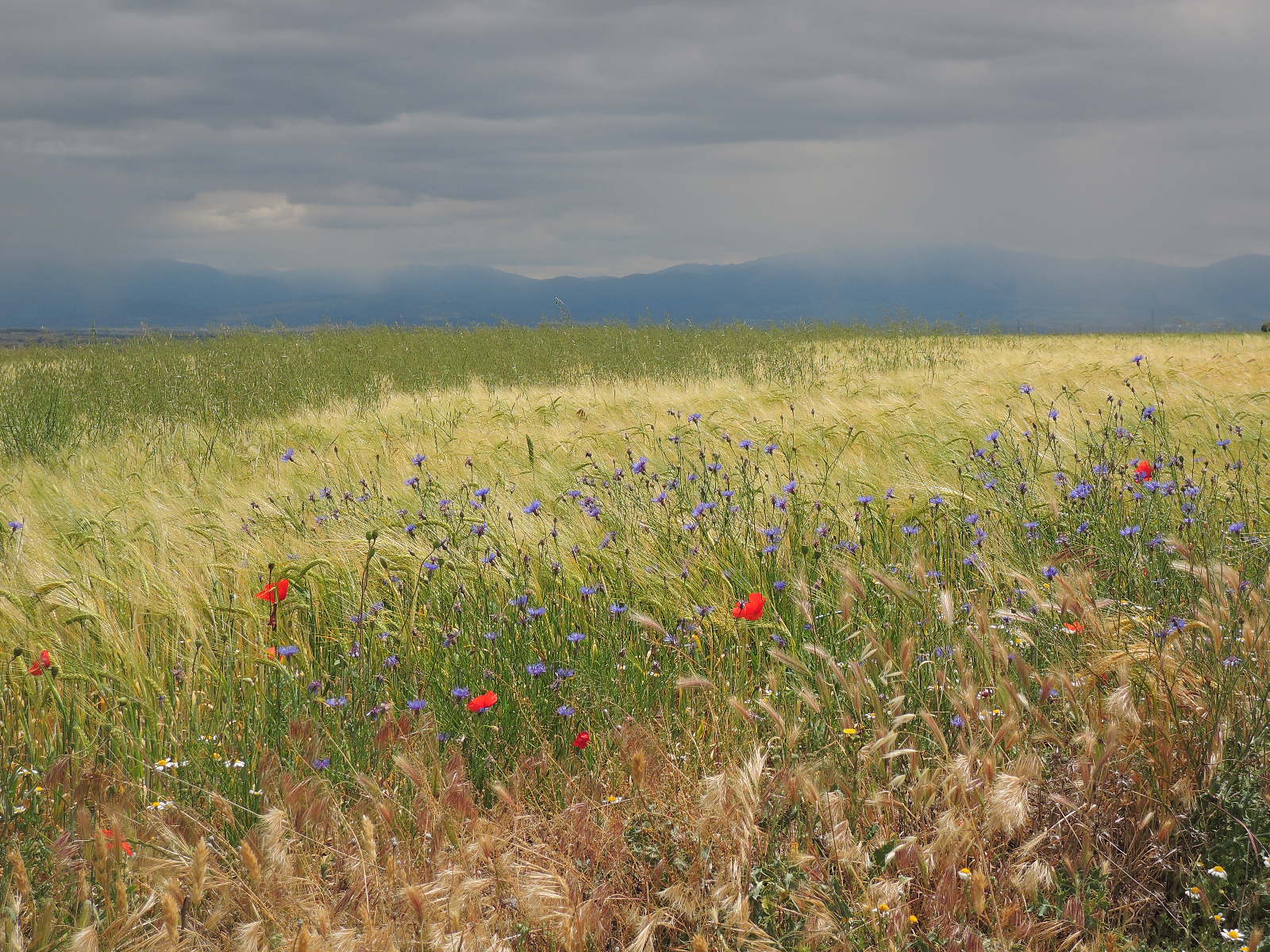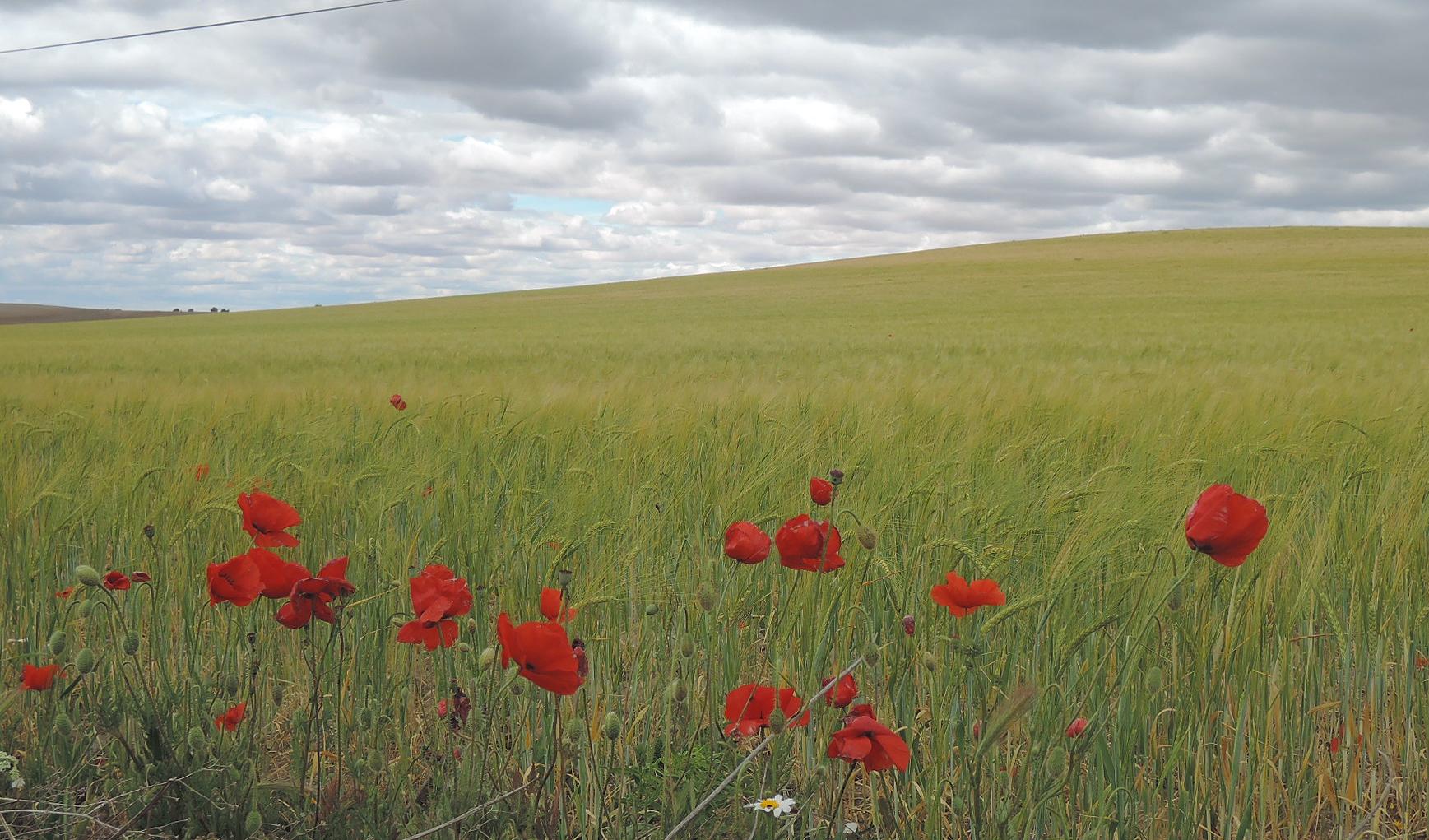Many people envy us travelers. That’s because they ignore our life’s drama. Every process in the Universe, every movement, every activity takes origin in some misbalance, and aims to an equilibrium; and traveling is no exception to such rule. The rover, the tramp, the pilgrim, the vagrant, all of them walk because they need to find something they can’t find inside themselves: serenity, calm, peace. The man who knows who he is and knows what for he is, seldom devotes his life to traveling and usually doesn’t go much further than some chance tourism. But that wanderer, that restless roamer, the romantic globetrotter, are mostly myths. The vagabond carries his wearines not in his bones, but in his spirit, he often curses his solitud, and beware of that who has never asked himself, in the middle of some trip: what am I doing here? He fills his existential doubts with the goals of his destinations, replacing with these the vital aims of normal people: a family, a home, a profession. But the most wretched of them all -you can take my word for it- is the traveler who doesn’t even know where he’s going, the one who walks adrift.
This is the story of a journey to nowhere.
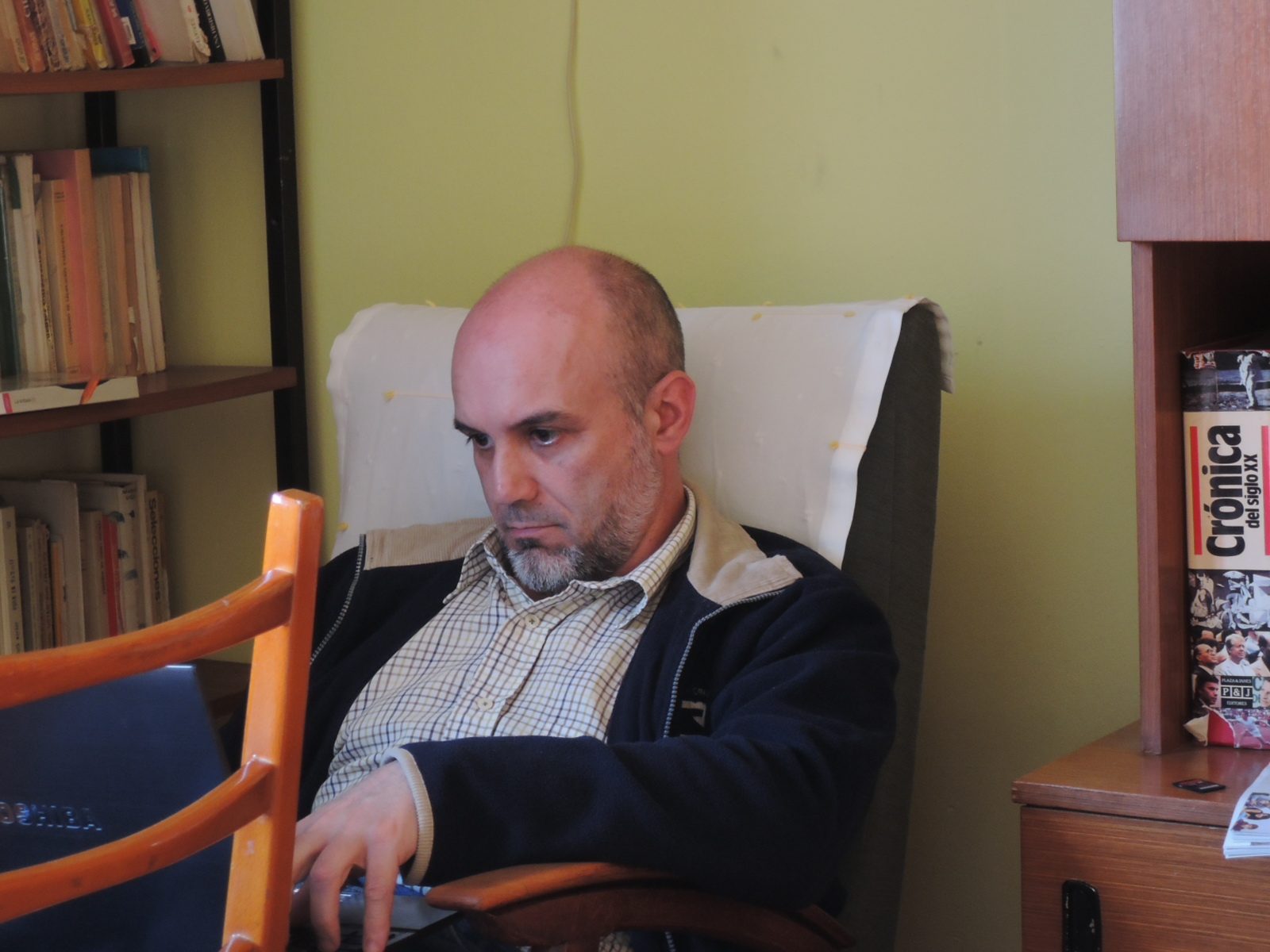
Pablo the hermit, lost in reading, absorbed among books and keyboards, ruminating on his destiny, before becoming Pablo the vagrant.
I usually write logs during my wanderings. Rather than taking pictures I try to describe with words the moments I live, my emotions, the situations, the environment. Photography can be a great ally, but also it can easily turn into the speech’s enemy and the expression’s annihilator; it can make us weak if we don’t set it bounds, if we don’t draw strict limits. Us, the stoics, we have to scourge the mind. Writing keeps fit our brain, our vocabulary awaken, our creativity agile. But times have changed: now we don’t need to give up any of both resources and it’s possible, maybe even desirable, to combine their virtues for better achieving our goal: describe our experiences, transmit our feelings. Voilá these online notes; do as you please with them.
It’s a windy May day, partially cloudy. I’ve been preparing my motorcycle for the past week or so: a full check, oil and filter change; getting a top case for more luggage (for some luggage at all, I’d say), buying the right clothing: boots, trousers, gloves. It’s hard–nay, it’s impossible to pick the right clothing when you don’t know where you’re traveling to, but I’ve been very thorough in trying to cover a variety of climates; I know I won’t succeed, but God will provice. It’s a figure of speech, of course.
I set off in the morning, albeit not early. Though I don’t have much life to spare, I’m no short of time, if you get my meaning. Time and it’s dirty tricks, so treacherous; but this round we’ve reached an agreement: I let it pass, it lets me pass. Sounds like a good deal to both.
I’m not in the least excited, mark; I feel no thrill whatsoever: I’ve already said, or implied, that traveling is my fate, not my choice. What else can I do? Settling down was not invented for me; or rather, I never learnt how to deal with that. I guess I’m a bum at heart; or say a tramp if you like it better, or a rover, which sounds nicer. So, when I turn on my bike’s engine, I’m yet not quite sure where I’m heading; maybe I know the course mor or less, but I haven’t thought of a particular route. Maps will play an essential role along this journey to nowhere, as decisions will be taken on the go perusing over them, a stage at a time. I don’t mean I won’t use any kind of criteria when deciding, though: temperature will be my guide. I’ll try to stick to latitudes best fitting the fragile limits of bike riding: five degrees too much and the engine will grill you from underneath while the sun will scorch you from above; five degrees too little and you’ll freeze all over, regardless of your clothe’s thermal insulation. Now, we’re in May and hot is coming this way; so, I’d rather head north.
I take the N-VI route, the veteran National Six that nowadays society with its complexes prefers to call A-6; I guess “A” stands for “aseptic”, so that no fool gets offended by the word “national” and, in his infinite stupidity, calls the Government names, like “nazi”. Now, I admit I don’t like speedways for riding my bike, but I’ve got to get out of Madrid, and as soon as possible; so the speedway is my best option. I once took local roads for the same purpose and it turned out to be a tremendous mistake: twenty miles around Madrid, such “local roads” are, rather, long streets packed with urbanizations and industrial units, plenty of roundabouts and undermined with such European road abomination called pasos sobreelevados or túmulos (raised crosswalks, or mounds), icing the cake of absurdity: we spend billions in decently paving our roads, and then we spend extra millions in making them impassable with the help of cross obstacles. Politicians: we didn’t need a saddlebag for such trip: if the point was to coerce people to drive slowly, we could all the same have left the roads as they were: plain dirt. Whatever…
You weren’t expecting a shoot of A-6 leading out of Madrid, did you? Good, then we’re getting along. I pull over as soon as I can, near Guadarrama. For a few kilometres, just a few, I see to my left the monastery of El valle de los caídos (Valley of the fallen), that overambitious and colossal construction, impressively beauty that some people want to tear down because it was erected by a dictator; great, let’s tear down the mayan pyramids as well, erected by the reckless murderers of the obsidian knives. Anyhow. Then, despite the fun one can have, I ride very carefully along the bends of the Alto del León mountain pass, because I’ve realized that I haven’t properly stowed my luggage among the sidebags and the top case: too much weight in the latter, too little in the former. I’ll have to move everything as soon as I have a chance.
Right across the mountains there’s San Rafael; the town that brings me so many memories of childhood and teens. Memories of a country house always smelling stale, memories of races and frolicks on the sunny and cool garden, of long rumbles under the pine forest; proustian memories as well, about butter bread for breakfast, such evocative scents. A childhood that I feel as distant as if belonging to some ancestor’s life. But I don’t stop here this time, maybe for fear of being haunted by those very recollections. Besides, it’s rather cool, and San Rafael is the coldest town in the whole mountain range, or kind of. I take a detour to N-603 to Segovia and I look for a place where to take a break for a hot coffee and putting on something warmer: the girdle and thicker gloves. I stop by Revenga. I love these mountain villages, small and cozy, where people are usually tough but kind, and the bar tenders are good natured, treating you like old buddies.
I cross Segovia tiptoeing, so to say: city full of history and monuments, if I stop here I’ll yield to the temptation of the local gastronomy’s superb tapas, and I’ll spend the rest of the day. Besides I said I want to leave Madrid, but Segovia is so close that it might be a quarter of that one. I’m looking forward to get into the countryside, and therefore in Segovia I head for Garcillán. Now we’re talking: my element: wheat, lollipops and third rate roads.
I’ve finally escaped Madrid’s gravity force, likea molecule which, after a collision, gained the energy for freeing itsemf from the Earth attraction and got out of the stratosphere forever, to the outer world. Garcillán, Nava de la Asunción, Coca… These villages on the Castilian plain are ugly like hell, victims of a “progress” that didn’t come -still hasn’t- hand on hand with sensitivity for beauty, and didn’t come along with appreciation for traditional things; quite on the contrary, most villagers have despised their humility and simpleness, mistaking progress with refusal of anything old fashioned, and the very moment they saved some little money, they threw in the bulldozers and tore their family house down, adobe or stone built, for pitching a new “modern” one, made of brick, as ugly as the next if not worse. This way a good part of Castile has been undone-redone: breaking piece by piece, house by house, what there was of beauty in it.
But the country… oh, the country! Wheat fields are golden like a blessing, gold golden, and when the some cloud covers the sun, and rainshowers make a curtain on the horizon, the day offers me its best photographs, and I’d have to be blind not to see them.
Suddenly I’m in Coca, whose name sounds slightly familiar, though I’m an ignorant. Perhaps I overheard it some time during my studies, or go figure. The road goes straight to the town’s wall remains, where an arched ancient gate shows a plate with this inscription: Flavio Teodosio the Great, emperor of the romans, was born in Coca in the year 345. He died in Milan in 395. Great soldier, good Christian, wise and fair legislator. But now the good Teodosio has been for sixteen centuries growing lollipops; what a trifle life is! Fifty years old he was when he died, and he had become the emperor of whole Rome! At his same age I’m but a bum on his way to nowhere. Thought: if you want to become something in life, you’d better achieve it before you’re fifty, because since then on, every year you make is an act against Nature.
There’s also a castle in Coca, but I don’t stop for a visit. I’ll find some others more interesting on my way. For the rest, and apart from the wall and the arched gate, Coca’s ugliness shooes me away. I almost feel relieved when I part horseback on Rosaura (I think I should give my bike another name) and I get into the wheat fields, so to say.
Soon afterwards I reach Olmedo, the renowned villa. I decide to stay here until next day: besides paying tribute to Lope de Vega, I’ve heard there’s a health resort with hots springs here. Oh, Olmedo! The verses of the folks poem, made famous by the playwright, come over and over to my mind, carrying all their musicality, their beauty, and the nostalgy that comes always along such chants:
Que de noche lo mataron
al caballero,
la gala de Medina,
la flor de Olmedo.
(Sorry folks, no translation for that) How you were great, Don Félix, the Phoenix of ingenuity as you were fairly called. Not emperor of Rome, yet there’s a privileged place for you in my heart and in my memory; you are part of me, Lope de Vega y Carpio. A good chance for reading again your play about Olmedo and rekindling the emotions of yore, when I read it for the first time, in those times of high school. It’s too bad that Olmedo, the villa you made inmortal, wasn’t able to preserve its medieval charm and fell with its neigbours to uglyfying itself during the overwhelming culture-quake of the seventies. Because, leaving the health resort aside, Olmedo is as ugly as the neighbouring villages. Places that have never had any urban regulations, nor any intention to. Places where every neighbour can happily build the ultimate horror before the insensitive stare of the mayor (maybe even with his applause?) and other authorities. Anyhow, I said I’d stay overnight here, just in case the health resort can help me toneup my body and chill out my spirit.
This health resort is an oasis in a double sense: water in the middle of the desert and beauty in the middle of monstruosity. They well may, given the prices. But it’s not excessively expensive, considering what it offers. Ample and fine rooms, nice gardens, passable views, premises well taken care of, relaxing music, spiritual atmosphere, a thermal pool about the right size, not too empty, not too crowded, where everything works as expected; the staff are nice, the breakfast plentiful and the massage menu well assorted and affordable. Professional, yet not stiff. Castilian after all. It’s well worth a weekend.

